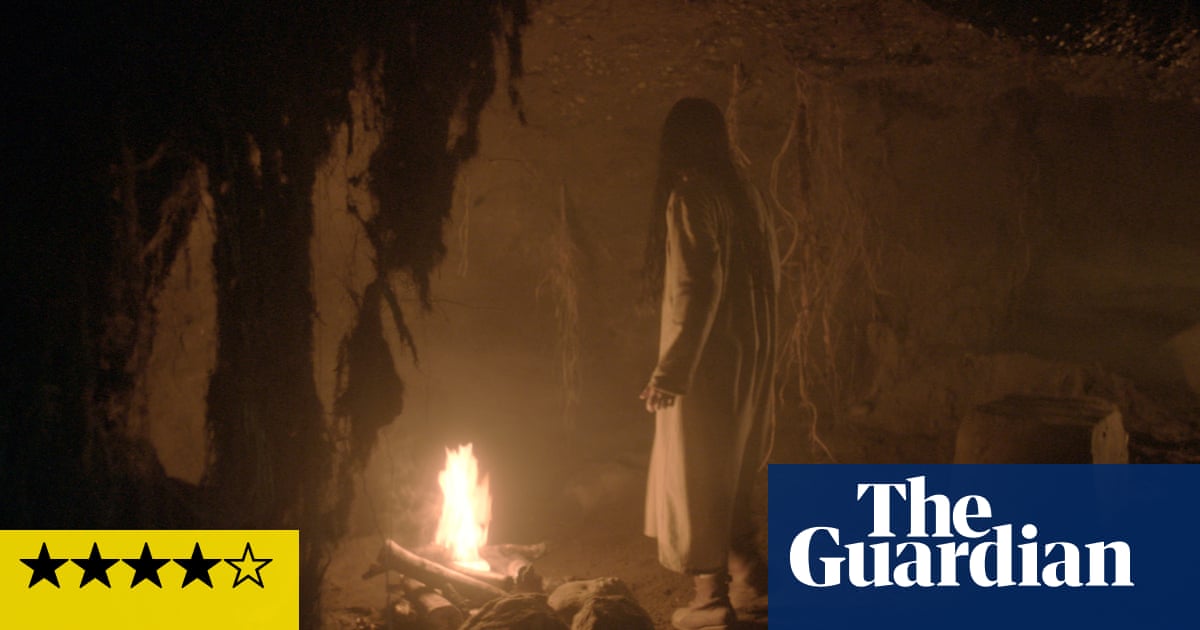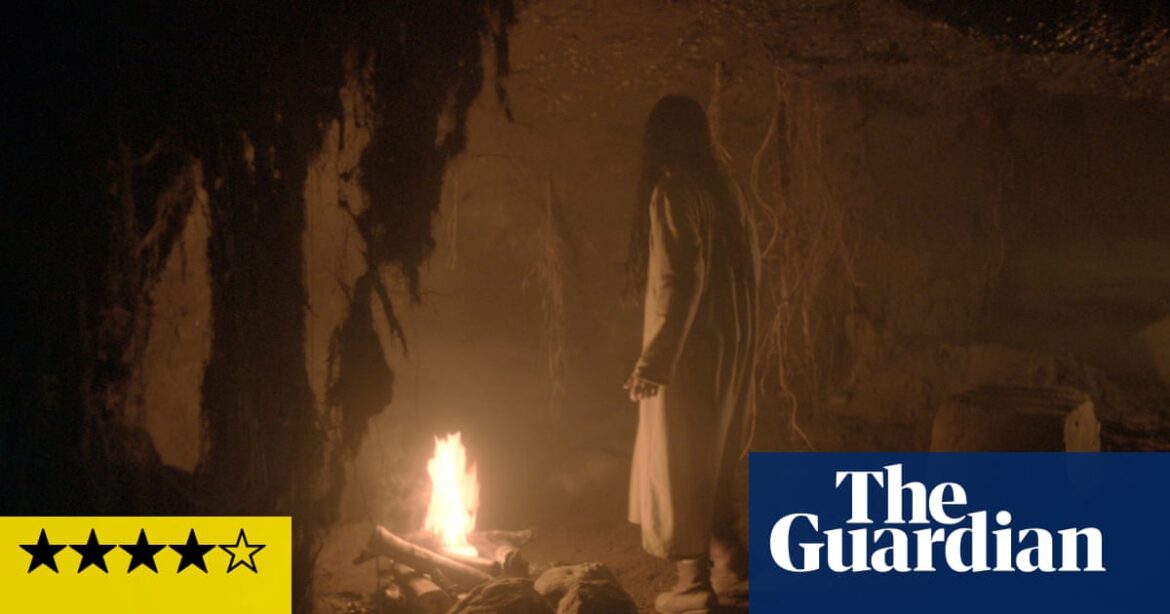
Just as the 2015 film Embrace of the Serpent reversed the terms of the Aguirre-style colonialist expedition picture, this Chilean-Mexican-German collaboration (produced by Pablo Larraín) is a kind of inverted horror film that similarly draws on South American history. Where in western horror, Indigenous or pagan elements usually become demonised return-of-the-repressed fodder, in Chilean director Christopher Murray’s unsettling fantasy they are a source of identity, power and even reverence.
Sorcery is a 19th-century radicalisation story. On the rain-lashed island of Chiloé, Indigenous teenager Rosa (Valentina Véliz Caileo) works as a servant for German farmers; speaking their language and practising their Christian religion, she is cut off from her Huilliche roots. When all the homesteaders’ sheep die simultaneously, with twine braids found on their corpses, her father refuses to give up any culprits and paterfamilias Stefan (Sebastian Hülk) unleashes his hounds on him with lethal results. Sent to live with Mateo (Daniel Antivilo), an elder involved with Indigenous secret society La Recta Provincia, the orphaned Rosa senses the potency of their rituals and realises they could bring her justice.
Often shot in sepulchral twilight, Sorcery lingers in an unresolved purgatorial space between the German settlers, the vilified tribal peoples, the Spanish-speaking governor (Daniel Muñoz) begrudgingly keeping the peace in this backwater posting, and Rosa herself. Instead of hitching itself to a Judaeo-Christian sense of evil and hysterical horror mechanics – especially when Stefan’s kids go missing – Murray lets Rosa’s awakening of consciousness seep slowly through. As she deepens her involvement with La Recta Provincia and undergoes an initiation with sorcerer Aurora, pacing that at first seems cautious gathers into an almost transmutational eeriness present throughout the landscape.
The anticolonial message is clear, but kept subtle and sorrowful, always cloaked in a solemnity emanating primarily from Caileo’s watchful performance. (Antivilo, as her sponsor full of furtive rage, is also good.) The foreigners’ violations feel like an upheaval of the natural order and harmony must be restored by redressing the imbalance. As this presses in, Murray’s film – with its milky shorebreak and shaggy forests – has a bristling and restless aura.
Source: theguardian.com



